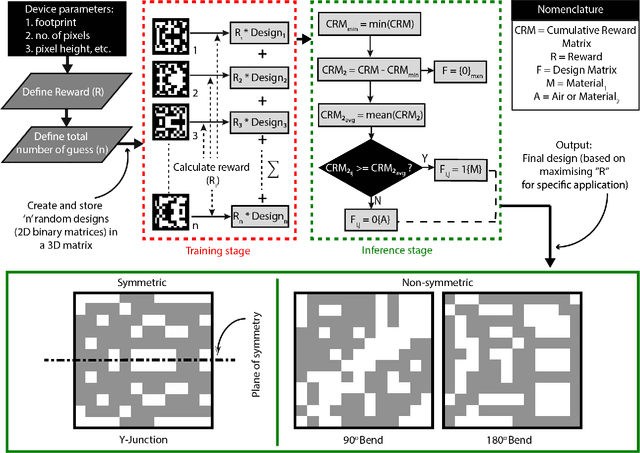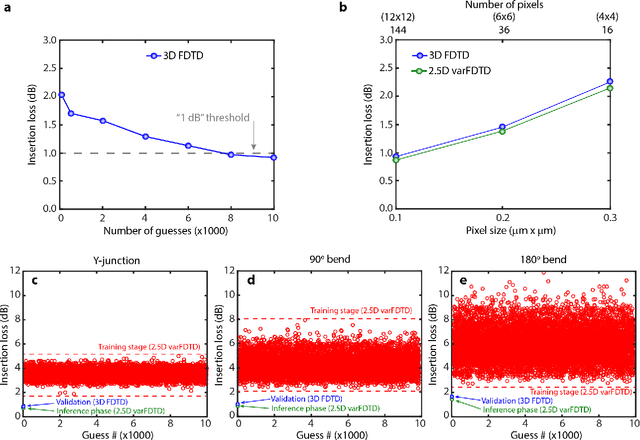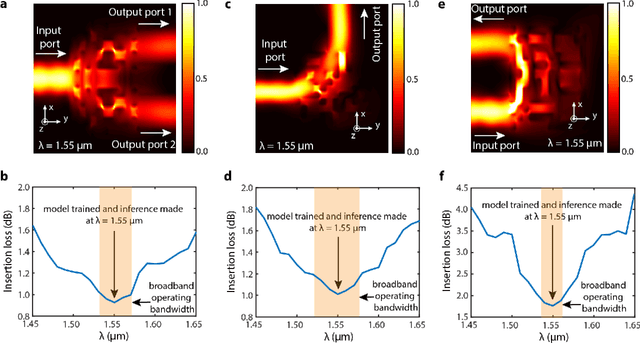Get our free extension to see links to code for papers anywhere online!Free add-on: code for papers everywhere!Free add-on: See code for papers anywhere!
Alex Hamrick
Machine Learning enables Ultra-Compact Integrated Photonics through Silicon-Nanopattern Digital Metamaterials
Nov 27, 2020Figures and Tables:







Abstract:In this work, we demonstrate three ultra-compact integrated-photonics devices, which are designed via a machine-learning algorithm coupled with finite-difference time-domain (FDTD) modeling. Through digitizing the design domain into "binary pixels" these digital metamaterials are readily manufacturable as well. By showing a variety of devices (beamsplitters and waveguide bends), we showcase the generality of our approach. With an area footprint smaller than ${\lambda_0}^2$, our designs are amongst the smallest reported to-date. Our method combines machine learning with digital metamaterials to enable ultra-compact, manufacturable devices, which could power a new "Photonics Moore's Law."
Via
 Add to Chrome
Add to Chrome Add to Firefox
Add to Firefox Add to Edge
Add to Edge